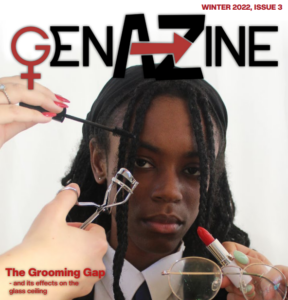Curriculum Intent
 Sociology A level at SHSG aims to develop students’ sociological imagination and change the way that you think about the world around you. We want our sociologists to develop a greater understanding and awareness of social, political, legal and educational changes in society and the impact on individuals and groups. Through the study of Sociology, we aim for our students to develop a greater sense of tolerance and understanding of class, gender and ethnic diversity and differences in society. We want our learners to be willing to question their own assumptions and empathetically consider the opinions of others.
Sociology A level at SHSG aims to develop students’ sociological imagination and change the way that you think about the world around you. We want our sociologists to develop a greater understanding and awareness of social, political, legal and educational changes in society and the impact on individuals and groups. Through the study of Sociology, we aim for our students to develop a greater sense of tolerance and understanding of class, gender and ethnic diversity and differences in society. We want our learners to be willing to question their own assumptions and empathetically consider the opinions of others.
As a department we have high expectations of our students and achieve excellent results which enable students to go on to achieve their goals. Students are challenged by engaging lessons and encouraged to go beyond the curriculum.
We follow the AQA Sociology A level specification which embeds the two core themes of socialisation, culture and identity, as well as social differentiation, power and stratification. These two core themes are related to the topics of Families and Households, Education, and Research Methods in Year 1, and Crime and Deviance, Mass Media and Theoretical Debates in Year 2. Sociology A level links well with other Social Science subjects to develop an understanding of society and provides an excellent foundation for those going on to further academic studies in related areas.
During the course, learners will explore the wider sociological debate between structural and social action theories. You will learn about positivist and interpretivist approaches and consider the strengths and weaknesses of using quantitative and qualitative research methods. We will explore the key question of whether sociological research can truly be ‘value free’. We encourage students to use examples drawn from your own experience of small-scale research, enabling sociological knowledge to be applied to contemporary real-world situations.
All students will be supported to develop sophisticated academic writing, including the development of effective analytical and evaluation skills. Critical reading is used as a tool to explore a wide range of sociological research, empowering our students to be able to make their own judgements and conclusions on questions such as ‘can sociology be a science?
By the end of the course, we aim for our learners to be able to articulate different perspectives on a wide range of sociological issues, such as ‘do prisons work’? You will learn how to make intelligent synoptic links between topics, for example recognising the relationship between incorrect socialisation, failure in education and criminal activity. We will challenge learners to think about the interconnectedness of the human experience and the impact of the structures of society on individuals. We want our learners to understand how sociology as a discipline has developed during the last century and why it is more relevant than ever as a subject today. As a student of sociology, you will start a life-long journey of critical thought. We aim to develop the skills needed to help our learners shape their own self-identity and confidence to challenge the status quo. The knowledge and awareness of sociological theories will equip you to become active, critically thinking, considerate global citizens.
What does it feel like to be a student in the Sociology Department?
What does it feel like to be a student of Sociology at SHSG?
As an SHSG sociology student, you will be curious and motivated to learn more about key sociological issues both within the society in which you live and globally. In lessons, you will be challenged to consider preconceived ideas and to ‘rethink’ society, applying a range of sociological perspectives and theories.
Through the development of highly effective independent learning skills linked to the VESPA programme, those wishing to go on to study sociology at a higher level will be extremely well prepared to face academic challenges.
You will be provided with an extensive reading list and encouraged to read widely around the subject. You will read The Sociology Review Magazine to keep up to date with contemporary research and examiner guidance on how to succeed. You will stay abreast of current affairs and have an awareness of the political landscape and changes to social policies.
You will become a critical thinker who will question and challenge what you see and hear. In a world of fake news and so many places to find information, you will learn how to seek out reliable sources and check facts before developing informed opinions. The acquisition of academic language and knowledge will enable you to share your ideas and challenge the views of others.
In the safe classroom environment, you will feel comfortable asking our supportive teachers for help when needed. You will have a wide range of resources available to you at Open House, including revision materials, past papers etc. At weekly support sessions you will have the opportunity to practise a range of examination questions, to hone your writing skills and get valuable feedback from teachers.
There will be a wide range of enrichment opportunities available to you. A programme of visiting speakers will enable you to engage with key theorists, such as Professor Dianne Reay from Cambridge University and Professor Louise Archer from UCL. Carrying out your own research project is encouraged and an excellent way for learners to apply sociological knowledge to the real world, for example by observing the power dynamics in a local magistrate court. Trips to the ‘Sociology in Action’ A level Criminology/Sociology conference aim to develop application skills, giving you the opportunity to debate with sociologists from around the country. If you are interested in sharing your opinions more widely, you will have the opportunity to write for the SHSG Social Science Magazine ‘GenaZine’, an excellent platform to raise awareness of issues affecting young people today. You may follow in the footsteps of SHSG sociology alumni who have entered or been awarded prizes in the prestigious BSA Sociology A Level Essay competition, or the Cambridge University Photography competition.
If you wish to further your education in a sociology related field, you will be advised and guided through the process by our knowledgeable staff. Many of our sociology students go on to read sociology at university or take related courses in areas such as criminology or anthropology- in recent years students have studied at universities such as Cambridge, Durham, Bath, and Exeter. Past students will be able to speak to you about their experiences and offer advice. You may prefer to take an apprenticeship pathway; alumni have previously taken up roles in in related areas such as youth justice and marketing.
As a SHSG Sociology student you will develop a lifelong interest in social issues, you will learn to see the world differently and be able to articulate your opinions effectively. You will develop the skills needed to prepare you for a successful and rewarding career. By studying A level sociology, you will cultivate the skills needed to find solutions to social issues and make positive contributions to society.
Please click on the button below to download the assessment policy for Sociology.

